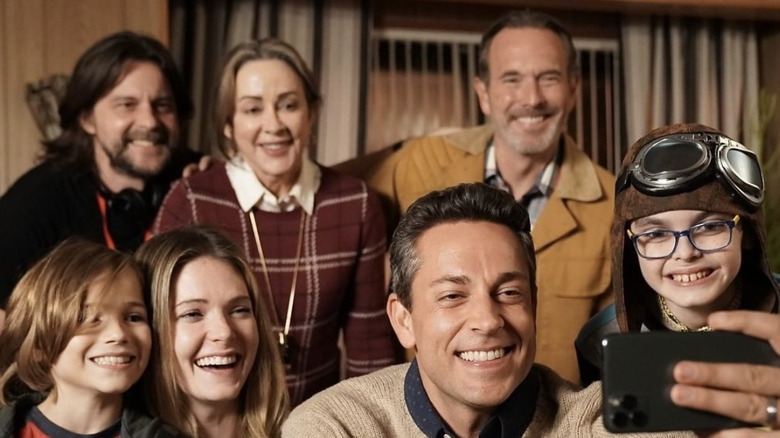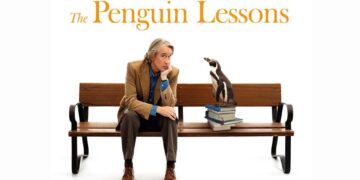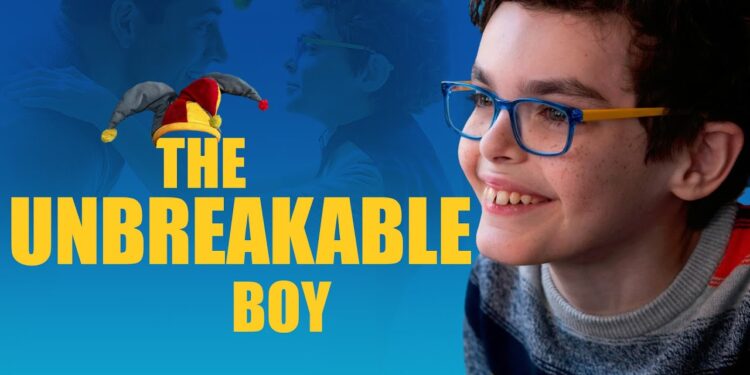Director and writer Jon Gunn seamlessly brings The Unbreakable Boy: A Father’s Fear, a Son’s Courage, and a Story of Unconditional Love by Scott Michael LeRette and Susy Flory from page to screen. The film tells the poignant story of Austin, known as Auz or Auzman (Jacob Lavel), a young boy with autism and osteogenesis imperfecta (OI), or brittle bone disease, as he navigates life alongside his devoted mother, Teresa (Meghann Fahy), and his emotionally distant, alcoholic father, Scott (Zachary Levi). From the opening credits, we are introduced to Scott and Teresa’s love story, tracing their journey from an unexpected pregnancy to the hopeful anticipation of their “perfect baby.” However, upon Austin’s arrival, his excessive crying signals something is amiss. Doctors soon diagnose him with osteogenesis imperfecta, a condition genetically inherited from his mother. Logically, prenatal testing such as amniocentesis could have detected this earlier, yet—for dramatic effect or narrative choice—this step is omitted. Despite Teresa’s awareness of her genetic condition, the revelation serves as a pivotal moment. From there, the film follows Austin’s childhood, portraying him as a typical kid who loves superheroes, movies, and milkshakes. Meanwhile, his parents struggle to navigate the challenges of raising a child with complex medical needs, learning to adapt, grow, and embrace their journey together.

Teresa, a devoted stay-at-home mother of two, navigates the complexities of caregiving. At the same time, Scott, a struggling husband and father, turns to alcohol as an escape from his feelings of inadequacy. His existential turmoil is further shaped by the presence of a guardian angel, who offers guidance as he wrestles with the weight of his responsibilities. The Unbreakable Boy presents a poignant exploration of raising a child with special needs and the profound emotional toll it takes on his parents. What begins as an idealized vision of the “perfect baby” quickly gives way to a sobering reality, encapsulated in the heartbreaking confession, “I don’t wanna break him.” While the film aims to challenge conventional notions of normalcy and celebrate the resilience of its young protagonist, its narrative remains largely tethered to the parent’s experiences.
Delving into themes of faith, resilience, unconditional love, and the acceptance of disability, the film illustrates how a child facing immense challenges can become a catalyst for profound personal growth in those around him. At its heart, the story follows a father’s journey of self-discovery as he learns to embrace his son’s unique spirit rather than viewing him as someone who needs to be “fixed.” As he poignantly reflects, “I spent most of my son’s life trying to figure him out so I could fix him. But he wasn’t broken—I needed him to fix me.” The film leans heavily on Austin as an emotional anchor for his struggling parents, particularly his father, whose demons and transformation take center stage. This emphasis often overshadows Austin’s own story, making his journey feel secondary to the impact he has on those around him rather than allowing him to exist as a fully realized character in his own right. While the family’s journey through hardship is undeniably moving, the decision to frame the narrative through Austin’s voice—despite being adapted from his father’s memoir—creates a disconnect. This perspective blurs the emotional core, at times making the portrayal feel more intrusive than insightful.

The Unbreakable Boy aims to craft a heartfelt narrative within the Christian family film genre but ultimately falls short. Its reliance on clichés and overly sanitized storytelling diminishes its authenticity, making the portrayal feel whimsical rather than deeply resonant. While the film’s intentions are commendable, it lacks the depth and grit necessary to deliver a truly impactful story. Its polished, almost idealized approach to hardship prevents it from fully capturing the raw complexities of its subject matter. As a result, The Unbreakable Boy feels more saccharine than substantive, leaving audiences yearning for a more genuine and transformative experience.


























